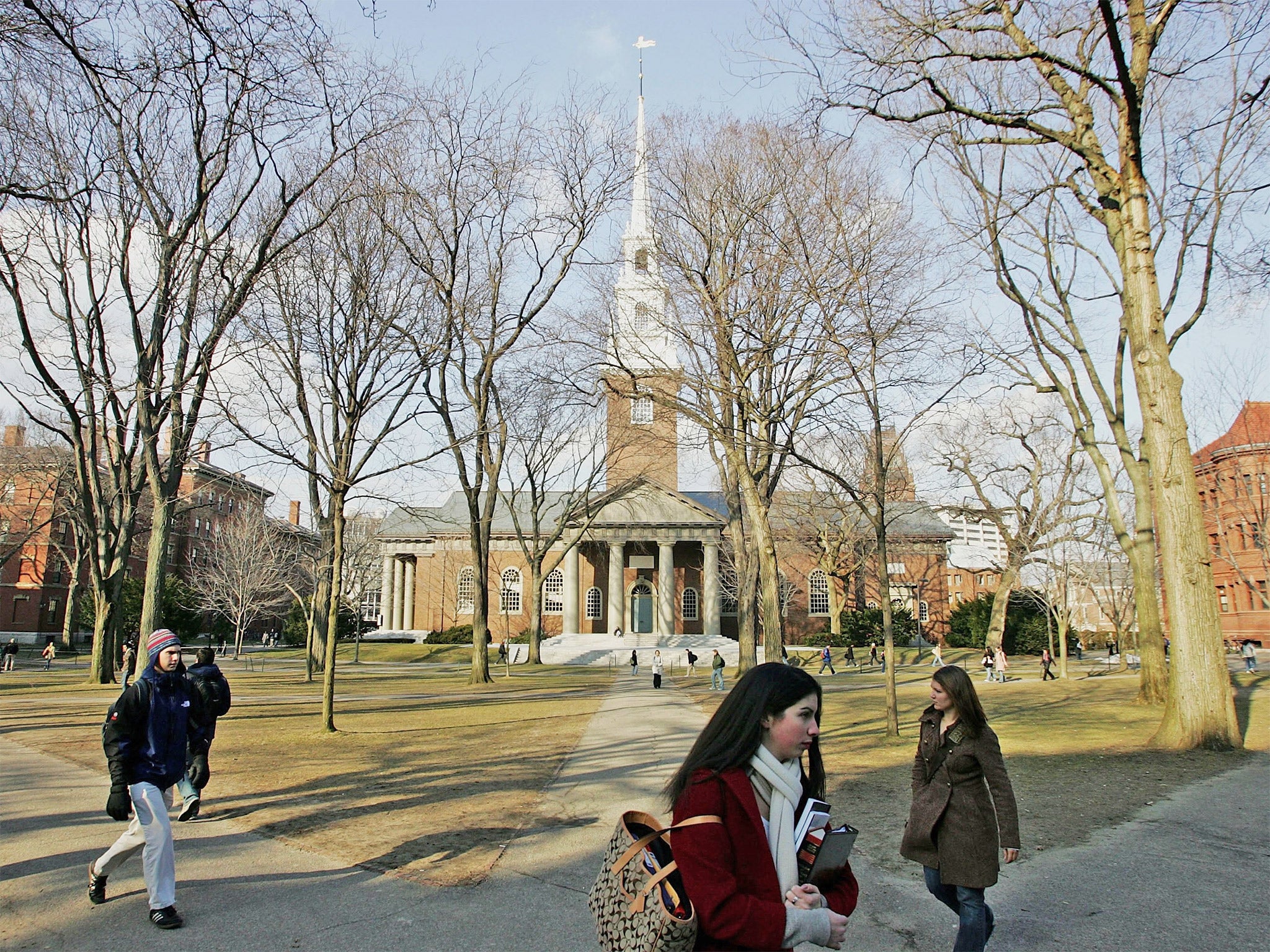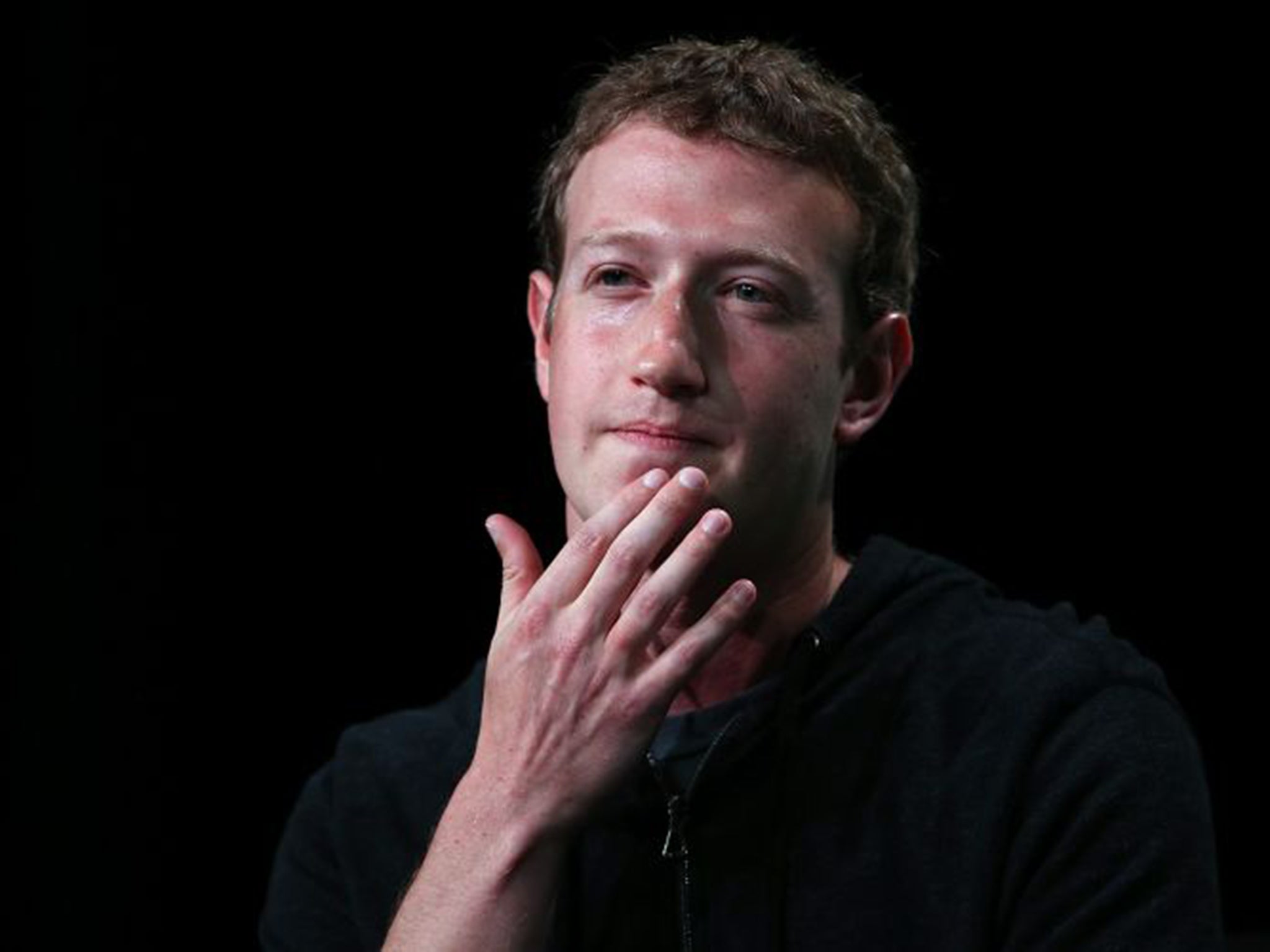How the Harvard-Stanford admissions hoax became an international scandal
A math prodigy was told she could spend two years at Stanford and Harvard University in a dual-enrollment opportunity - but it was too good to be true

The Korean math prodigy at one of the nation’s top high schools had Facebook’s Mark Zuckerberg on the phone, personally encouraging the teenager to attend Harvard University. She received letters from Harvard professors, encouraging her to bring her brilliant abilities to Cambridge next fall instead of accepting her admission to Stanford University on the opposite coast.
As she struggled to decide between five-figure scholarship promises from both schools, she got a novel offer: She could spend two years at each elite school as part of an arrangement just for her. The exciting dual-enrollment opportunity garnered starstruck coverage from Korean media outlets, which dubbed her the “Genius Girl.”
But none of it was true.
The baffling hoax has stunned the Thomas Jefferson High School for Science and Technology in Fairfax County, the top-ranked magnet program known as an intellectual proving ground for science wunderkinds, technology gurus, engineering buffs and math wizards — many of whom earn their way to the nation’s most prestigious colleges.
The senior’s tale of academic conquest of admission into what turned out to be a bogus program apparently was designed to impress her parents, peers and teachers as part of the annual cutthroat competition for the relatively tiny number of spots at the nation’s top schools. The faked admission story went much further than most teen fantasies because it made its way to the international media, where her parents ultimately admitted it was false and publicly shamed themselves before the Korean community.
Many of the graduates of TJ, as the school is known, go on to illustrious academic careers. Just recently, a senior who earned a 4.57 grade point average, aced 13 Advanced Placement tests and founded a national non-profit before her 18th birthday earned admission to all eight Ivy League schools, a story that made national headlines. Another senior who designed the electronics system for a 6-foot, 120-pound robot capable of lifting crates received a scholarship from the SpaceX aerospace corporation founded by internet billionaire Elon Musk.
The question now at a school is what caused the student to concoct an elaborate college admissions scheme. The answer seems obvious to students and teachers there: Overwhelming pressure to succeed from parents and unrealistic expectations from the teens themselves.
“We celebrate the accomplishment of students who get into all eight Ivies,” said Brandon Kosatka, TJ’s director of student services. “That’s the bar, and our kids are shooting for that. They don’t like to be the second best. If that’s the bar, then yes, that creates anxiety for them.”

One student, who spoke anonymously to offer a candid view of the school’s climate, said that teenagers are expected to boast impressive extra-curricular activities on top of stellar grades.
“You’re going to have pressure to do well,” the student said. “But you also need to play 17 different sports and instruments.”
Fairfax County schools spokesman John Torre declined to comment. School board member Ilryong Moon, whose two sons graduated from TJ and later attended Harvard and Brown, said that the school is very popular in Northern Virginia’s Korean community. Admission to TJ is highly selective and Asians are accepted at a higher rate than their peers; next year’s freshman class is 70 percent Asian.
“In general, I feel that it’s not just TJ but all of our students are feeling more and more pressure to do well,” Moon said. “The competition is becoming stiffer.”
Jung Jong-chul, education attache at the Korean embassy in Washington, said that TJ is known as one of the top high schools in the area and is well known “for some Korean people who know or live around the D.C. area.” That might explain why the story exploded overseas.

The college admissions process can be perplexing for students who are used to solving math equations with definitive answers, Kosatka said. He said that some students measure their own academic success based on college admissions, which can lead to devastating moments of realization when acceptance letters arrive in mailboxes.
“They are big fish in a small pond,” Kosatka said. “It’s a big self-esteem blow when you learn there are other big fish out there, that you’re just another star among stars. ... Sometimes it’s not in the cards, and that’s difficult for students who are accustomed to being successful to swallow.”
Kosatka said that a lot of the pressure students feel comes from parents and teachers: “They don’t want to let down the adults in their lives.”
That stress appeared to be too much for at least one young woman at TJ, who goes by her nickname, Sara. The Washington Post is not identifying the student because she is a minor who has not been accused of a crime. Attempts to reach the student’s family were unsuccessful and her father did not respond to an e-mailed request for comment.
In breathless coverage in the Korean media, the student was hailed as the “genius girl” who made her parents immensely proud by gaining acceptance and scholarships at two of the best schools in the country. According to Korean reports, she soon had Harvard and Stanford professors fighting for her to enroll. Several news outlets reported that Zuckerberg called her personally to persuade her to choose Harvard, which he attended for two years. A spokesman for Zuckerberg declined to comment.

The student and her family granted interviews which appeared in overseas coverage and in Korean-American news.
The student “answered the phone one day and it was Zuckerberg, so she was surprised,” her mother told the Korean publication Newsis. “He said he was in Panama, and that he had called her because it was easier to talk by phone than by e-mail.”
But students at TJ grew suspicious and began questioning the story. That skepticism made its way into online listservs in the Washington region. Then earlier this month, the entire senior class at TJ received an e-mail from a person claiming to be Harvard mathematics professor Joseph Daniel Harris.
“We’ve heard various rumors related to Sara, and I am here to put it to an end,” the e-mail read. “In addition, we’ve heard numerous comments related to her research and achievements, but we know much more than all of you guys know, so it needs to stop.”
Harvard officials told The Post that the e-mail from Harris was a forgery.
The ruse finally unraveled when Sara’s father wrote an apology to Korean news publications.

“I am sincerely sorry for causing trouble with what is not true,” the father wrote, according to Yonhap, the South Korean news agency. “I am deeply repentant that I failed to watch properly over how painful and difficult a situation the child has been in so far and that I even aggravated and enlarged her suffering. ... From now on, the whole family will live a quiet life, devoting ourselves to getting the child cured well and taking good care of her. Please forgive me for being unable to offer detailed explanations as the situation has not been completely figured out yet.”
Both Harvard and Stanford declined to confirm if the student was accepted to either school.
In a statement to The Post, Harvard spokeswoman Anan Cowenhoven wrote that the university was made aware of claims that the student received “three admissions letters and multiple e-mail communications.”
“None of these communications were sent by Harvard, and we can confirm that they are all forgeries,” Cowenhoven wrote. “There is no program in existence through which a student is admitted to spend two years at Harvard College and two years at Stanford University.”
Stanford spokeswoman Lisa Lapin wrote in a statement to The Post that admissions letters Sara provided to Korean press organizations “were not authentic and were not issued by Stanford University.”
Lapin also said one Stanford professor who had been quoted in Korean media about Sara had in fact never spoken to the press about her and had never met or communicated with her.
“Stanford also does not have any type of program that would allow an undergraduate student to be admitted to two universities ,” Lapin said.
Kosatka said that instead of emphasizing students’ admission to selective colleges, parents and teachers should focus on ensuring that the teenagers are getting into schools that are the right fit for their talents and interests.
“There’s a disconnect,” Kosatka said. “We spend a lot of time socially saying ‘Oh, who got into Harvard, Princeton, Brown and Yale?’ We send a mixed message.”
Copyright: Washington Post
Join our commenting forum
Join thought-provoking conversations, follow other Independent readers and see their replies
Comments
Bookmark popover
Removed from bookmarks